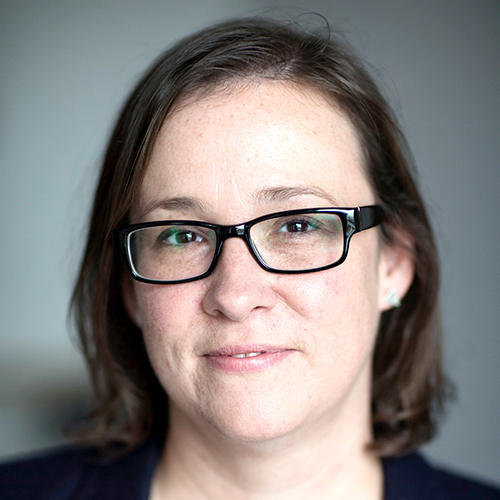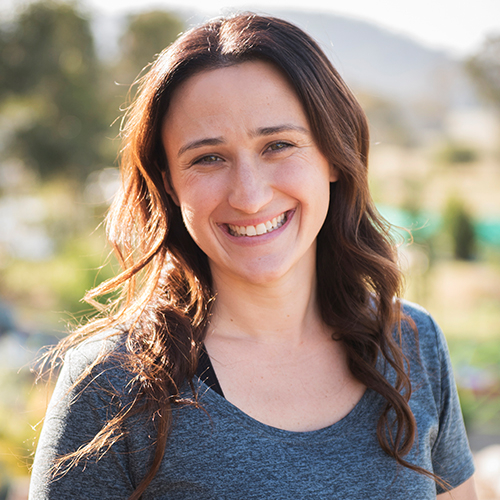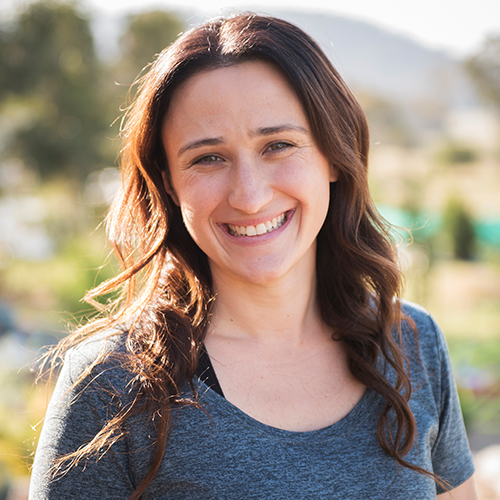 Prenatal Care Online Course(s) & Continuing Education
Prenatal Care Online Course(s) & Continuing Education
Access the latest clinical skills and research for Prenatal Care for PREGNANCY, LABOUR & CHILDBIRTH professional training. These Prenatal Care online courses provide practice-changing skills and valuable perspectives from leading global experts. This Prenatal Care education has been accredited for a variety of CEUs / CERPs and can be accessed on-demand, at your own pace.

Expanding Our Knowledge of the Clinical Management of Asthma During Pregnancy

Dr Karen McLaughlin is a Clinical Midwife Specialist with 30 years experience and a midwifery academic and researcher currently teaching Midwifery at the University of Newcastle, Australia. Her previous PhD research involved quantitative and qualitative methods and examined the management of asthma during pregnancy and the potential to translate new management methods into practice. This research has led to 11 publications to date, the development of clinical guidelines for antenatal asthma management and a globally available Asthma in pregnancy toolkit, for health practitioners, researchers and consumers.
Dr Mclaughlin has a passion for qualitative research methods and has used appreciative inquiry to examine the student midwife experience in order to build on current practices to ensure retention of student midwives and optimal experiences for student midwives and midwives. Dr McLaughlin's current research areas include examining asthma management in the postpartum period and it's association with breastfeeding and exploring perinatal mental health and models of maternity care.
Asthma is the most common chronic medical condition to affect pregnancy. For example, in Australia 12.7% of pregnant women have asthma. Poorly controlled asthma leading to exacerbation of symptoms can lead to poor maternal and neonatal outcomes such as preterm birth and low birth weight babies. Asthma in pregnancy can be unpredictable in that approximately 1/3 of women experience a worsening of their asthma symptoms with the other two thirds either experiencing an improvement of their asthma symptoms or no change. Recommendations for the management of asthma during pregnancy is clearly stated in clinical practice guidelines.
These include regular review of asthma symptoms, having a multidisciplinary team approach to management, ensuring ongoing prescribed medication use and having an asthma action plan.
Previous research has identified the need for improved knowledge and awareness of asthma in pregnancy among health professionals and pregnant women. Innovative management techniques and educational resources are being developed and implemented to continue to meet these needs and to improve the outcomes for women and babies whose pregnancy is affected by asthma.

Gestational Diabetes: Optimizing Pregnancy and Post-Pregnancy Care

Professor Claire Meek is professor of chemical pathology and diabetes in pregnancy at the University of Leicester. She runs the diabetes in pregnancy service in University Hospitals Leicester, which supports around 10,000 deliveries per year, including many in women with diabetes. Prof Meek has recently moved to Leicester and previously worked at Addenbrooke's hospital, Cambridge (UK) and as a principal investigator at the Wellcome-MRC Institute of Metabolic Science, University of Cambridge. She is supported by a Diabetes UK intermediate clinical fellowship and Future Leaders' Award from the European Foundation for the Study of Diabetes in association with the Novo Nordisk Foundation. She has also won several national and international awards including the Young Investigator Award and Pregnancy special interest group award from the American Diabetes Association, the Young Investigator Award from the Association of Physicians (UK) and the British Medical Foundation Helen H Lawson Award.
Professor Meek runs a research team of scientists and healthcare professionals who work together to run interventional and observational clinical studies in diabetes, nutrition and obesity in pregnancy. They have recently completed a whole-diet randomised controlled trial to test a dietary intervention in gestational diabetes (DiGest trial), and the DiGest follow-up study, assessing the effect of pregnancy interventions upon maternal and offspring cardiometabolic risk postnatally. Prof Meek contributed to the CONCEPTT trial, assessing real time continuous glucose monitoring in women with type 1 diabetes in pregnancy, which led to widespread changes in clinical care internationally.
Gestational diabetes affects around 20 million patients per year internationally, with long-term consequences for the health of mother and child. Women with gestational diabetes are at increased risk of pre-eclampsia, perinatal trauma and operative delivery, and are more likely to develop type 2 diabetes (T2D) and cardiovascular disease (CVD) in later life. Affected offspring are at increased risk of obesity, insulin resistance and metabolic syndrome in childhood and adolescence. The lack of a standardized diagnostic pathway internationally and inadequate access to treatment creates real challenges in optimizing care for affected women and their children. Gestational diabetes is managed using medical nutrition therapy, metformin and/or insulin. After pregnancy, women should be screened for the development of diabetes. Longer-term interventions are needed to reduce the risk of T2D postnatally. The aim of this presentation is to discuss the causes, treatment and longer-term management of patients with gestational diabetes. We will focus on the use of nutritional advice, medication and lifestyle changes on gestational diabetes incidence and management. We will outline key strategies for preventing T2D in affected patients after gestational diabetes and highlight the role of breastfeeding in improving women’s longer-term metabolic health.

Hypermobility Spectrum Disorders (HSD) and Pregnancy: Assessment and Clinical Management

Monika Patel, Doctor of Physical Therapy and Strength and Conditioning Specialist has a passion for empowering women to prepare mentally and physically for a well-balanced parenthood. She is currently undergoing the American Physical Therapy Association's Certificate in Obsetrics. She has applied her knowledge toward preventative medicine and established Train4Birth, an affordable online education and beneficial movement course with a built-in accountability feature. She is also the mother of a truck-loving toddler and couldn’t be happier than digging with him in the backyard.
Hypermobile Ehlers-Danlos Syndrome (hEDS) and Hypermobile Spectrum Disorder (HSD) are estimated to affect 6 million (4.6%) pregnancies globally per year. As such, cases of hypermobility in maternity services should no longer be considered rare, only rarely diagnosed. Learn more about the potential impact of hypermobility on pregnancy, how to screen for it and clinical management. Useful hypermobility screening tools and decision-making matrices for birth workers, relative to a patient’s degree of hypermobility, will be outlined.

Ironing Out the Details: The Hidden Crisis of Iron Deficiency During Pregnancy

Augustine is an internationally recognized midwifery educator, experienced business executive, and veteran midwife with a heart focused on the underserved, marginalized, and under-resourced. She respects the importance of being empowered and undisturbed during labor, and balances this attention to the sacred with 20+ years experience attending births in hospitals, birth centers, and homes in rural, urban and suburban environments in the US and abroad. Augustine’s focus is finely attuned to the process of letting go and opening to the unknown in labor and in life. Additionally, Augustine has a master’s degree from Bastyr University in Seattle, WA where she majored in Maternal/Child Health Systems.
Her life's mission is to mainstream midwifery and deconstruct the culture of fear and misinformation that surrounds the maternity world globally. To that end, Augustine 'midwife's the midwife' through her many education programs, consulting services, product development, podcasts and video production, business site visits, and with private coaching services for midwives, students, maternity practice owners, & birth center administrators through her consulting firm, The Midwifery Wisdom Collective. It is her profound honor to illuminate the sacred path to joyful and sustainable midwifery practice. She lives and works in India.
Topic: Ironing Out the Details: The Hidden Crisis of Iron Deficiency During Pregnancy - [View Abstract]
We exist on this planet because of the vital metals like sodium, potassium, magnesium, and calcium that easily dissolve in our body's water. Equally important are iron, zinc, and copper, found in nearly half of our proteins.
Iron plays a crucial role in our blood, with four iron atoms in hemoglobin storing and transporting oxygen. Inadequate iron in early childhood leads to reduced attention span, difficulty grasping concepts, irritability, social withdrawal, and delays in language and motor skills. Iron deficiency during pregnancy increases the risk of premature birth, low birth weight, birth asphyxia, maternal infections, pre-eclampsia, and hemorrhage.
Approximately two billion people or 25% of the global population lack sufficient dietary iron and iron stores. Anemia (the last stage of iron deficiency) caused 50 million years of healthy life lost due to disability in 2019 alone. This presentation aims to educate healthcare providers and birth workers on the magnitude of this epidemic and provide guidance on the essential laboratory assessments, symptoms and the new evidenced-based values for evaluating iron status in patients. It will also cover important aspects of proper treatment approaches.

The Midwife's Role in Core and Pelvic Floor Health During the Perinatal Period

Bernadette is a midwife with a Master in Public Health (MPH), core and pelvic floor specialist, published author and previous pant wetter. She has worked in midwifery across Australia from remote Aboriginal Communities to big city hospitals to publicly funded homebirth. She spent a year volunteering as a midwifery educator in the Solomon Islands and teaches midwifery emergency courses in rural and remote areas around Australia. She was awarded the Sidney Sax award for best overall performance in her MPH. She is also the Founder and Creator of Core and Floor Restore – online education and exercise programs, workshops, and consultations. Her passion is to enable people to use their bodies and minds to their greatest ability in all aspects of life. A big part of her work is centered around emotional and physical birth trauma and postpartum recovery. She offers free online antenatal classes and co-host's "The Great Birth Rebellion" an evidence-informed podcast. Bernadette’s life mission to bring the rate of birth trauma down to zero whilst simultaneously improving postpartum care. She has epically birthed two babes at home and recovered from incontinence and prolapse. When she isn’t working or studying you can find her out bush, camping and hiking or splashing in the bath at home with her boys.
Up to 75% of women will experience a prolapse in their lifetime. 1 in 3 will experience urine incontinence and 1 in 10 faecal incontinence. Around 60% of women experience diastasis recti. Add in pelvic girdle pain, a hypertonic pelvic floor, perineal and vulva trauma, vaginismus, vulva varicosities, anal fissures and haemorrhoids and most women, at some point, will describe their body as feeling broken.
Midwives play a crucial role in assisting women in the prevention and treatment of these conditions. International guidelines and clinical standards advise that pregnant and postpartum people should be doing pelvic floor muscle training (PFMT). This however, is not just as simple as doing Kegels while waiting at traffic lights. In order to provide best care, midwives need a deeper understanding of the physiology of the core and pelvic floor in pregnancy, birth and postpartum.
This presentation will enable a deeper understanding of the physiology of the core and pelvic floor during pregnancy, birth and postpartum. You will learn practical techniques to assist women in protecting their core and pelvic floor during these stages, including how best to support physiological birth and what we can do when interventions occur. We will also cover techniques and realities for postpartum healing and evidence-based advice to managing existing conditions.

View Details / Enroll











